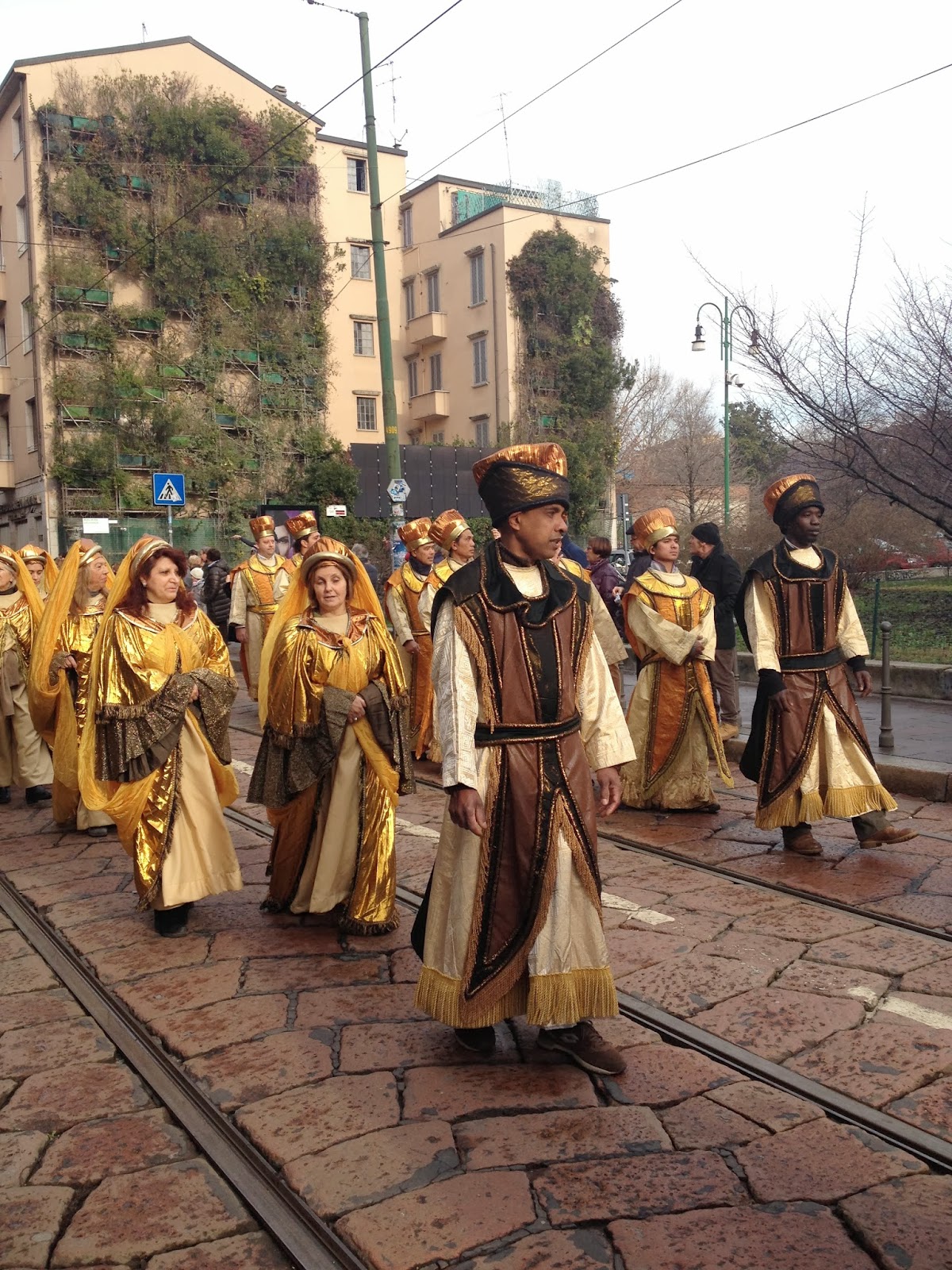The Feast of the Epiphany, celebrated January 6 with a national holiday in Italy, and the tradition of La Befana are a big part of Italian Christmas celebrations. Epiphany commemorates the 12th day of Christmas when the three Wise Men arrived at the manger bearing gifts for Baby Jesus. The traditional Christmas holiday season in Italy lasts through Epiphany.
La Befana
Italy's traditional celebration includes the tale of a witch known as La Befana who arrives on her broomstick during the night of January 5 and fills the stockings with toys and sweets for the good children and lumps of coal for the bad ones.
According to the legend, the night before the Wise Men arrived at the manger they stopped at the shack of an old woman to ask directions. They invited her to come along but she replied that she was too busy. Then a shepherd asked her to join him but again she refused. Later that night, she saw a great light in the sky and decided to join the Wise Men and the shepherd bearing gifts that had belonged to her child who had died. She got lost and never found the manger.
Now La Befana flies around on her broomstick each year on the 11th night, bringing gifts to children in hopes that she might find the Baby Jesus. Children hang their stockings on the evening of January 5 awaiting the visit of La Befana.
See My Befana for La Befana song and more about the legend.
The origins of La Befana may actually go back farther, to the Roman's pagan festival of Saturnalia, a one or two week festival starting just before the winter solstice. At the end of Saturnalia, Romans would go to the Temple of Juno on the Capitoline Hill to have their augers read by an old crone. Many pagan traditions were incorporated into Christmas celebrations when Christianity became main stream. La Befana was a good substitute for the old woman who read the augers. The saying augur originated with this practice, too, as it was common to wish someone good augers.
Milan holds an Epiphany Parade of the Three Kings from the Duomo to the church of Sant'Eustorgio.
This afternoon the parade from the Duomo passed our apartment.





Love all the costumed people marching down your street!
ReplyDelete